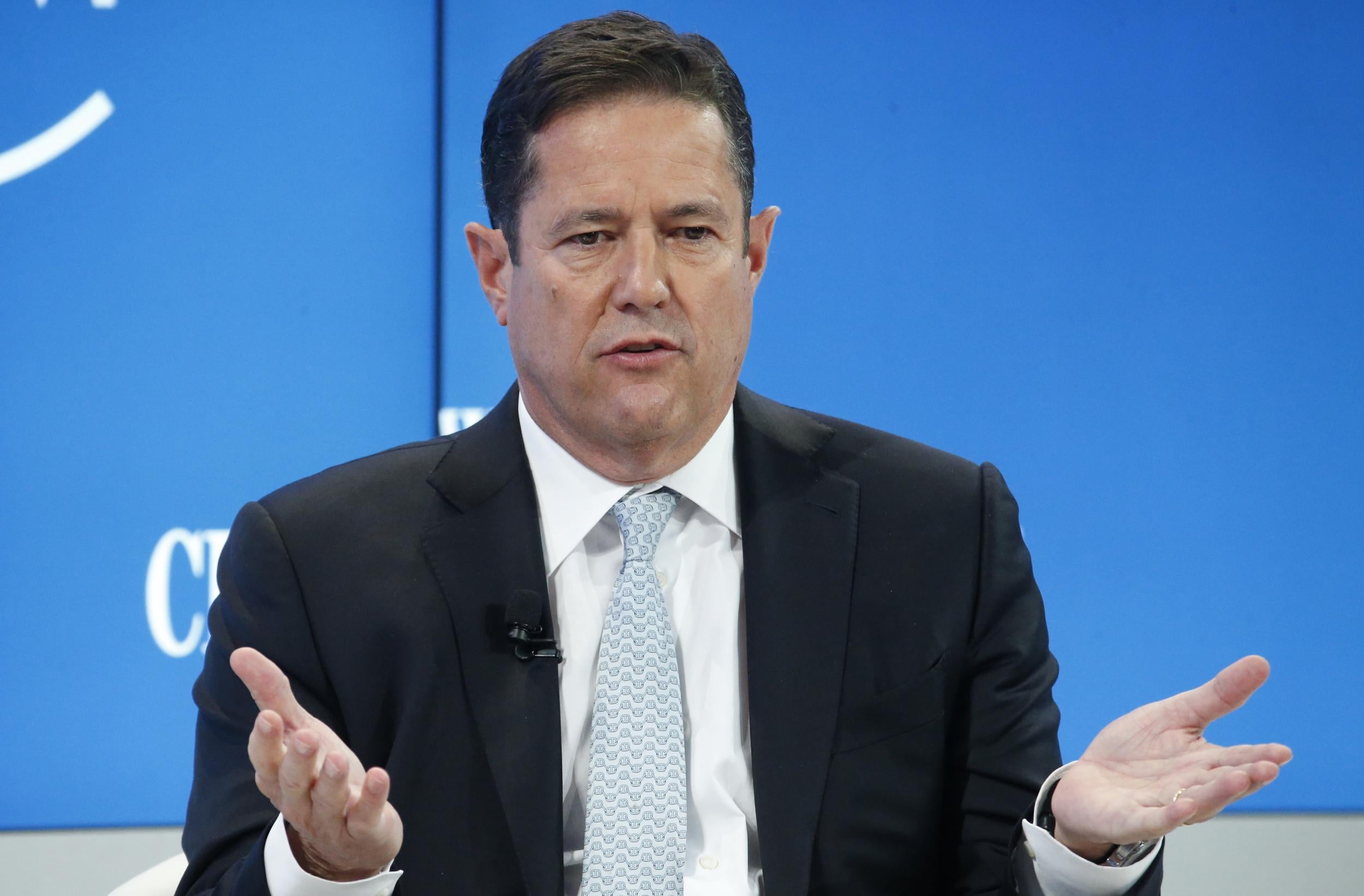Barclays boss Staley says cards are a bigger risk to bank than Brexit. Is he right?
The bank's boss is trying to convince the market that his 'universal banking' model is best. But that doesn't mean we shouldn't take his warning seriously

Barclays boss Jes Staley telling the world that the humble credit card poses a bigger risk to the bank than Brexit, the rise of nasty nationalists, Trump, the risky leveraged loans, anything in fact; it feels a bit like a habitual drunk driver warning of the dangers of going out on the road after a skinful.
This, after all, is the man in ultimate charge of Barclaycard, one of the world’s top credit card companies.
Of course, you have to consider the context, and the audience Mr Staley was seeking to reach, through the interview with Bloomberg in which he made the comments.
Barclays is in the midst of a fierce debate over what it should be.
Prominent on its shareholder register is Ed Bramson, a so called activist investor with a chunky stake and the habit of making a lot of noise. He’s agitating for the business to change course and scale back its investment banking ambitions.
Mr Staley, an investment banker by trade who made his name at JP Morgan, wants Barclays to sit alongside his old shop and the likes of Goldman Sachs, Morgan Stanley, and Merrill Lynch at Wall Street’s high table.
In so doing, he’s swimming against the tide of UK and European banking. Its big guns, Deutsche Bank, RBS and the like, have been scaling back their ambitions in this sphere, sometimes quite radically.
It's in America that banks still like to have retail banks sitting alongside investment banks. Even Goldman Sachs has been dipping its toes in the water with Marcus, a newish venture that created quite a noise in Britain with its launch of a chart topping savings account.
The theory behind this is that retail banks tend to get stressed at different points in the economic cycle to investment banks. The one thus cushions the other.
Of course, there were examples of pure play retail, pure play investment, and all things to all people universal banks falling flat on their faces in the financial crisis.
But in more normal times, it's a valid strategy and the market will decide which it thinks works best.
Therein lies Mr Staley’s biggest problem, because the market isn’t yet buying his universal bank.
While Mr Bramson doesn’t appear to have found much support among other investors, Barclays shares still trade well below its ‘book’ value, in other words, below the value of its in force businesses. That’s not a happy position to be in.
The warning about cards, and consumer debt, was designed to remind investors that retail banking can be risky too and that they might ultimately have cause to cheer Barclays Investment Bank.
It's not just his bank that has cause for concern about plastic, either. We all do.
Consumer borrowing has been growing at a far faster clip than real incomes in this country and that could have consequences every bit as nasty any of the exotic financial instruments investment banks play around with going pop.
Perhaps Barclays could take a lead in taking its foot off the gas?
Join our commenting forum
Join thought-provoking conversations, follow other Independent readers and see their replies
Comments